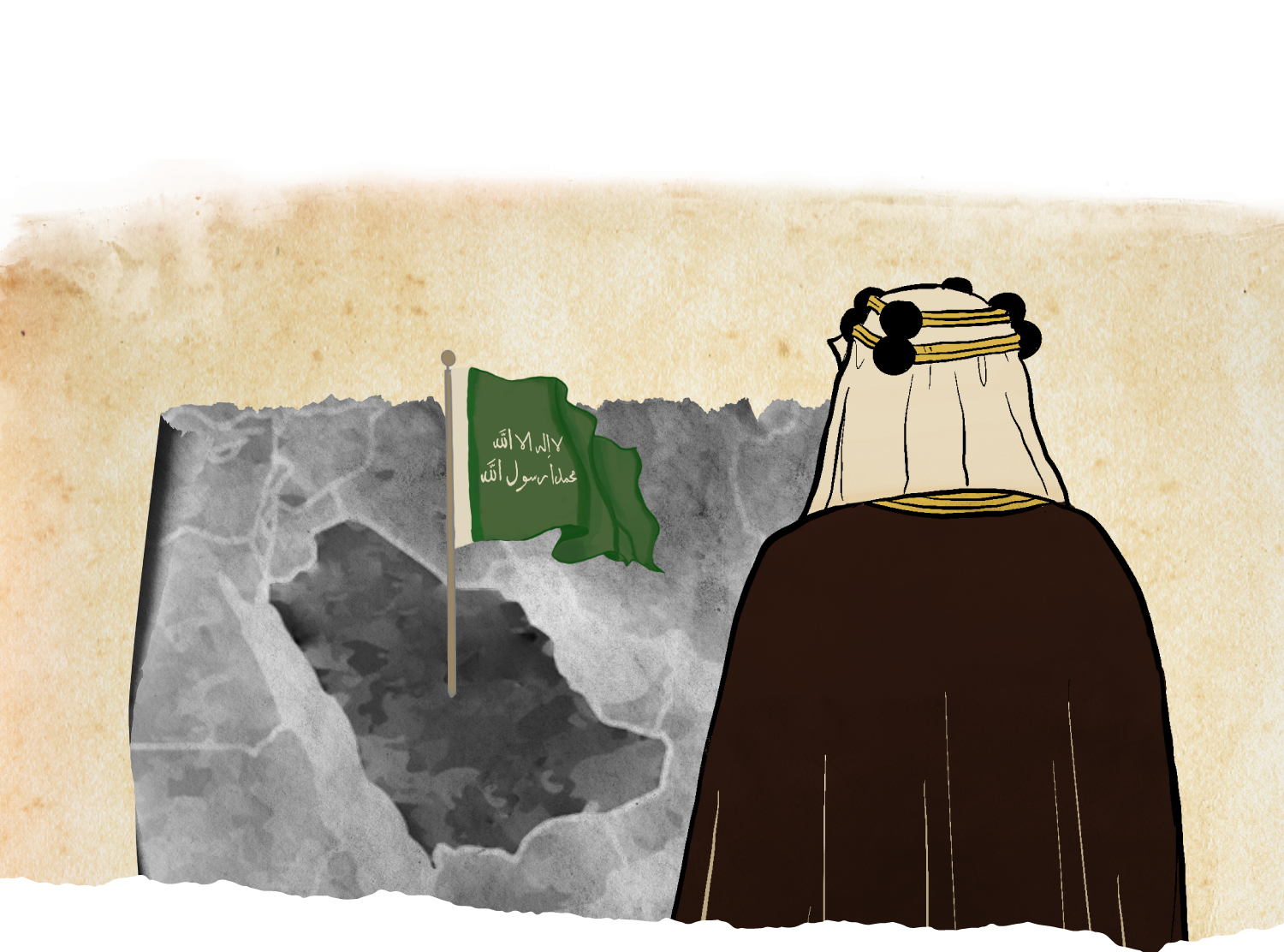
Despite the attempts of the Ottomans to impose a treaty in their favour
King Abdulaziz applied the so-called “Diplomacy of negotiation” during the First World War
The beginnings of the twentieth century constituted important shifts in the regional and international balances of power and brought back, once again, the logic of alignments according to interests, at times, and according to ideological loyalties, at other. The Arabian Peninsula was affected by the new international reality, especially since some of the parties of the World War were about to attack, and, hence, the danger of violent fight was looming over the theater of the Arabian Peninsula operations.
In this context, the First World War (1914-1918) coincided with King Abdulaziz, facing basic challenges that can be summarized in: confronting the compulsion of the struggle against Turkish subordination and then quelling the internal strife, before devoting himself to the goal of unification and stability. These are the challenges that the founding king was able to overcome, with great wisdom.
Perhaps the First World War, although one of its direct repercussions was the fall of the Ottoman Empire, yet King Abdulaziz took advantage of the new circumstance to be an accelerating factor in the consolidation and unification of the foundations of the state, making use of what was later called, in international relations literature, as “diplomacy of the negotiator”. It is the strategy, through which he will succeed in extracting, from Britain, an explicit recognition of his country as an independent country that is not affiliated with any other powers. This is the confession, included in the -later- signed Uqair Protocol (1915). It ensures that King Abdulaziz is to get certain political gains.
The Saudi-British relations infuriated the Turks, who were still suspicious of any approchement between King Abdulaziz and Britain. Therefore, in light of this geostrategic compulsion, they rushed to send a delegation headed by Talib Al-Naqib to make promises, that they never keep, which included their recognition of King Abdulaziz’s authority over the areas under the actual sovereignty of his state in return for declaring its subordination to them. But the outbreak of the First World War hastened it before the negotiations ended.
It is worth noting that the study of the behavioral structure of King Abdulaziz and the bave Saudi mentality makes it impossible for him to accept the conditions contained in the “Ottoman proposal”. The founder kept it with him, and did not sign it.
The outbreak of World War I made the Ottomans in dire need of King Abdulaziz. Perhaps what confirms this conclusion is his disapproval of aligning with them in the world war, preferring in return to the strategy of positive neutrality and playing on contradictions and exploiting them for the benefit of the new state.
In this regard, King Abdulaziz received a letter from Enver Pasha, requesting to send his forces to Syria to help the Ottoman government against Britain, but the founder replied with his regret that he was unable to do this due to local conditions. It seems that Britain found itself in a bad geostrategic position, especially when Sharif Hussein expressed the same position, and even declared a revolution against it, which made King Abdulaziz in a strong negotiating position with all parties.
King Abdulaziz’s manners could not have let accept but empowering his state, with its historical roots stretching back to 1744. Therefore, the wisdom of King Abdulaziz made him decide to avoid war alignments, and instead, work on continuing the stage of construction and unification, hence, avoiding wars and tragedies. The wisdom of the founding leader ended more than a century of violent clashes between Arabs and Turks, which was achieved by Turkey’s recognition of the Kingdom of Saudi Arabia by Atatürk in 1929.
The founder avoided war alignments during the First World War to continue the phase of construction and unification.



- Turkiah Al-Jarallah, King Abdulaziz’s position on the First World War (Master’s Thesis, Umm Al-Qura University, 2004).
- Hafez Wahba, The Arabian Peninsula in the Twentieth Century (d.d.: Committee for Composing and Translating, 1935).
- Khair Al-Din Al-Zarkali, The Peninsula in the Era of King Abdulaziz, 3rd Edition (Beirut: Dar Al-Ilm for Millions, 1985).
- Abdel Rahim Abdel Rahman, Modern and Contemporary History of the Arabs, 5th Edition (Cairo: Dar Al-Kitab Al-Jami, 1990).
- Abdullah Al-Othaymin, History of the Kingdom of Saudi Arabia (Riyadh: Al-Obaikan Library, 1997).

